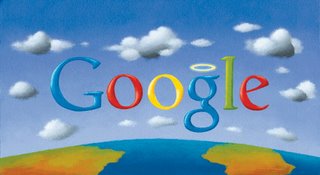GOOGLE INSPIRATIONAL ARTICLE

Source:http://www.economist.com/science/displayStory.cfm?story_id=6911096
...The mathematics comes from the founders, Sergey Brin and Larry Page. The Russian-born Mr Brin is the son of a professor of statistics and probability and a mother who works at NASA; Mr Page is the son of two computer-science teachers. The breakthrough that made their search engine so popular was the realization that the chaos of the internet had an implicit mathematical order. By counting, weighting and calculating the link structures between web pages, Messrs Page and Brin were able to return search results more relevant than those of any other search engine.
Mathematical prowess is also behind the other half of Google's success: its ability to turn all those searches into money. Unlike software companies such as Microsoft which get most of their revenues from licence fees, Google is primarily an advertising agency. It does not sell the usual sort of advertising, in which an advertiser places a display on a page and pays per thousand visitor “impressions” (views): it has perfected the more efficient genre of “pay-per-click” advertising. It places little text advertisements (“sponsored links”) on a page in an order determined by auction among the advertisers.
 But these advertisers pay only once an internet user actually clicks on their links (thereby expressing an interest in buying). This works best on the pages of search results, which account for over half of the firm's revenues, because the users' keywords allow Google to place relevant advertisements on the page. But it also works on other web pages, such as blogs or newspaper articles, that sign up to be part of Google's “network”.
But these advertisers pay only once an internet user actually clicks on their links (thereby expressing an interest in buying). This works best on the pages of search results, which account for over half of the firm's revenues, because the users' keywords allow Google to place relevant advertisements on the page. But it also works on other web pages, such as blogs or newspaper articles, that sign up to be part of Google's “network”.At a minimum, this hypothetical transformation would consist of moving computation and data off people's personal computers and on to the network—ie, Google's servers. Other names for this scenario are the “GDrive” or the “Google grid” that the company is allegedly working on, meaning free (but ultimately advertising-supported) copious online storage and possibly free internet access. Free storage threatens Microsoft, because its software dominates personal computers rather than the internet; free access threatens other internet-access providers.
Such concerns are forcing Messrs Brin and Page, still in their early 30s, and Eric Schmidt, whom they hired as chief executive and who is in his early 50s, to behave increasingly like a “normal” company. Google recently sent its first lobbyists to Washington, DC. Its decision to build an “evil scale” to help it devise its China strategy was more unusual, but its hiring of Al Gore, a former American vice-president, to aid the process, was just the kind of thing that old-fashioned empire-building firms do all the time.
0 Comments:
Post a Comment
<< Home